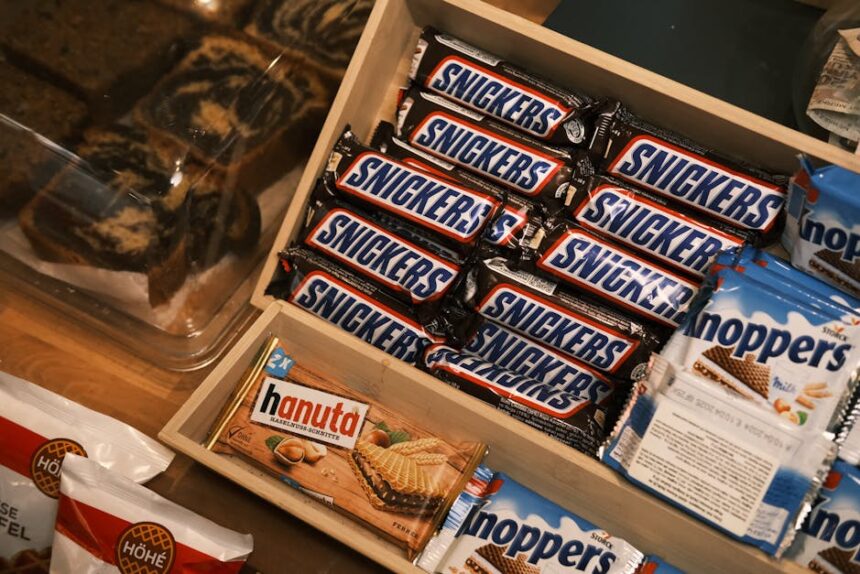Alright you’re ready to grow. Maybe you’re hustling to keep regulars happy, curious about what makes a neighborhood business thrive, or always on the lookout for ways to stay a step ahead. Ever wondered what lessons a fictional pork store could offer your small business? Let’s pull back the curtain on Satriale’s Pork Store from *The Sopranos* and talk shop ownership, legacy, and what this TV legend can teach you about running things smarter, not harder.
Satriale’s at a Glance: More Than Just a Pork Store
If you’ve ever binge-watched *The Sopranos* (or just caught an episode or two while folding laundry), you’ve seen Satriale’s Pork Store in action. On the surface, it’s the local butcher where you’d grab a good cut for Sunday dinner. Look closer, and you’ll spot a core theme for any business: ownership defines everything, from strategy to survival.
In Tony Soprano’s world, Satriale’s is a symbol. It’s the home base for the DiMeo crime family’s meetings and a point of pride passed down through generations. But don’t let the mobster angle throw you. Tilt your head, and you’ll see something familiar leadership, succession, and the tug-of-war between keeping things legit and managing behind-the-scenes risk. Sound familiar? That’s small business in a nutshell.
Tracing Ownership: Who Held the Keys to Satriale’s?
Let’s break down Satriale’s ownership history, because where the money, power, and paperwork go, the business follows. You’ll see quickly: every handoff matters a lesson every small business owner faces.
Francis Satriale: The Original Proprietor
Satriale’s was founded and run by Francis Satriale. He wasn’t in it for fast cash he worked the counter, built loyal customer ties, and ran a tight, classic shop. But like too many entrepreneurs, Francis fell prey to a common pitfall: personal vices (in this case, gambling). Those debts ballooned until the store itself became the payment. If you ever feel stretched, remember: keeping your financial house in order is more than good advice it’s business survival.
Johnny Soprano: Taking Over in the 1970s
When Francis’s debts came due, Johnny Soprano (Tony’s tough, business-savvy father) took the reins. He saw the store’s value not just as a butcher but as a meeting point, a piece of neighborhood real estate with endless potential. Under Johnny, Satriale’s thrived as more than a place to buy pork; it became the unofficial headquarters for the DiMeo crime family. Think of Johnny as the operations lead who sees opportunity in every square foot. He ran things until his death in 1986. See how succession, sometimes unplanned, shapes even the most iconic local business?
Tony Soprano: From Inheritance to Empire
After Johnny Soprano died, ownership went to his son, Tony. If you’ve ever run a family business or inherited the results of someone else’s labor, you know how messy and meaningful that handoff feels. For Tony, Satriale’s wasn’t just job security it was a badge of legacy. He transformed the pork store into a social hub and nerve center, all while keeping up the front of a “legit” business. There’s no better example of blending public image and private strategy. Tony never underestimated the value of community or loyalty, both to the business and its broader purpose.
Here’s a summary table for quick reference:
| Period | Owner | Notes |
|---|---|---|
| Before 1970s | Francis Satriale | Original proprietor, lost store due to gambling debts |
| 1970s–1986 | Johnny Soprano | Took over; expanded use as social/operational base |
| 1986 onward | Tony Soprano | Inherited ownership; store central to family business |
Satriale’s as a Case Study: Business Lessons in Every Scene
What can you take from a fictional pork store? More than you think. Satriale’s is a case study in how place, ownership, and image shape a business lessons you can use without breaking the bank.
Make Your Place a Community Anchor
Don’t just open your doors and hope traffic finds you. Satriale’s was the go-to for informal meetups, neighborhood news, and real talk. For Tony, hosting his crew there was as important as slicing the prosciutto. Want to build similar loyalty? Start by being present. Host small events, support local causes, and know your regulars. Let them see you working not hiding in the back office.
Every Storefront Tells a Story
From signage to sausage, Satriale’s sold a story. Even as a criminal front, the store looked like a pillar of the community. Ask yourself: does your business project confidence and care, or does it look like it’s on autopilot? Start with small upgrades a cleaner window, better lighting, or a friendly sign. Want a no-cost win? Smile at every customer and remember one thing about them. That feeling sticks.
Don’t Overlook the Paperwork (or the Pitfalls)
Francis lost his business to bad habits. Johnny and Tony understood risk and succession. Avoid repeating their mistakes by keeping your books clean, getting your succession plan in order, and separating personal risk from the business as much as possible. Talk to your accountant and lawyer early, not after trouble starts. Then you can plan for growth, not just survival.
Use Your Space, Don’t Be Used By It
Satriale’s was both a legitimate business and a not-so-legit operation. While you’re keeping things legal, ask yourself if every part of your business adds value. If a corner of your store just gathers dust, can you use it for a pop-up, coworking, or joint promo with another business? Expand hours or services before you take on new rent or a renovation. Test first, then scale.
Filming Satriale’s: The Real-World Storefront
Here’s a fun fact: Satriale’s wasn’t a real pork store. The storefront you see on screen was actually a building in Kearny, New Jersey. Before fame, it was a real butcher shop called Centanni’s. Once Hollywood rolled in, everything changed tourists came, the neighborhood buzzed, and the building became legendary.
But just like in business, nothing lasts forever. After filming ended, the actual building was demolished in 2007. That’s a sobering reminder for all of us: even the most recognizable places can fade if they’re not kept up, reinvented, or passed on with a plan. If Satriale’s had survived outside the show, maybe it could have rebranded (think: “The Sopranos Experience Deli”) or become a community landmark. As a business owner, stay alert to how pop culture, trends, and nostalgia shape foot traffic and opportunity.
Satriale’s Impact: More Than Nostalgia, It’s a Business Blueprint
The legacy of Satriale’s isn’t just for TV nerds or drama fans. It’s a masterclass in running a business that’s both adaptable and grounded. Tony Soprano kept the shop relevant not just because he was “the boss,” but because he understood the heartbeat of his block. He mixed tradition with smart change, in ways small business owners can appreciate.
Use Satriale’s as a prompt: are you hanging onto the way things were, or are you finding creative new uses for your space? Are you building loyalty with your regulars, or just ringing up anonymous sales? You don’t need mob muscle to build staying power you need consistency, community, and a willingness to reinvent when the market shifts.
Here’s a practical bit: if you’re looking to structure ownership or succession plans, tools and advice abound. Start with your core needs insurance, a clear will, and tax planning. Don’t let fear or confusion stall you. Want a helpful resource? Check out Small Business House for guides and strategies built for hands-on entrepreneurs like you.
Final Thoughts
Alright let’s wrap it up the smart way. Satriale’s Pork Store isn’t just TV nostalgia. It’s the living (and on-screen) proof that ownership, strategy, and street smarts trump luck every time. The store’s journey from Francis Satriale to Johnny and Tony Soprano mirrors the core trials that every small business owner faces: risk, reward, and responsibility.
When you’re thinking about growth, don’t get dazzled by grandeur or afraid of legacy issues. Start with what you have a space, a service, a community, a vision. Stay steady in the basics. Use simple, customer-friendly habits to stay top-of-mind. Learn from Satriale’s: pass on what works, fix what doesn’t, and invite your neighborhood into the story.
Small, steady wins honest work and loyal customers outlast even the flashiest moves. Who knows? Maybe in thirty years, someone will be asking who “owns” your legacy. If you run your shop with grit, strategy, and a personal touch, you won’t just own a business…you’ll own a piece of your community’s memory. Isn’t that the best kind of success?
Ready to write your chapter? Start today, and don’t forget to keep the lights on. Somebody’s always watching, and for the right reasons.







